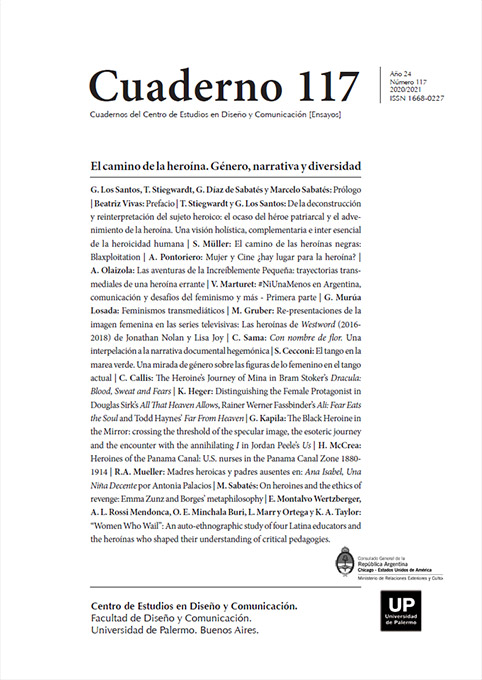On heroines and the ethics of revenge: Emma Zunz and Borges’ metaphilosophy
Abstract
The story Emma Zunz is a rara avis in the production of Jorge Luis Borges in two ways. First, women are rarely the main protagonists in his fictions. Second, while Borges explores philosophical themes in a significant number of his stories and essays (and poems), ethical issues are hard to find. In this paper I propose a way of understanding Borges’ peculiar engagement with philosophical elements throughout his work, with some observations about the “Borgean metaphilosophy”. Following that framework, and comparing Emma Zunz as a character with other female characters in Borges, I argue that the ethical elements in the story Emma Zunz are better understood as shaping a heroine story more than as exploring ethical issues of justice, retribution and revenge.
References
Allende, Isabel (1990). Cuentos de Eva Luna. Plaza y Janes.
Borges, Jorge Luis (1974). Obras Completas. Emecé.
Borges, Jorge Luis (1962). Labyrinths. Selected Stories and Other Writings. Edited by Yates, Donald and Irby, James. New Directions Publishing Company.
Brodzki, Bella (1990). “Borges and the Idea of Woman”, Modern Fiction Studies, vol. 36, pp. 149-166.
Campbell, Joseph (1949). The Hero With A Thousand Faces. Pantheon Books.
Carter Jr., E. D. (1979). “Women in the Short Stories of Jorge Luis Borges”, Pacific Coast Philology, vol. 14, pp. 13-19.
Fernandez-Lamarque, María (2012). “Women in Borges: Teodelina Villar in ‘El Zahir’” in Women in Latin American and Spanish Literature, edited by Eva Bueno and María Claudia André. Mc Farland, pp. 178-194.
Fishburn, Evelyn & Hughes, Psiche (1990). A Dictionary of Borges. Duckworth.
Fitzgerald, Donna (2006). “Borges, Woman and Postcolonial History.” Romance Studies vol. 24, pp. 227-239.
Foucoult, Michael (1970). The Order of Things: An Archeology of the Human Sciences. Random House, Inc.
Kelley, David (2014). The Art of Reasoning. 4th Edition. W. W. Norton & Company.
Magnavacca, Silvia (2009). Filósofos Medievales en la Obra de Borges. Miño y Dávila Editores.
Maier, Linda (2002). “What is in a Name? Nomenclature and the case of Borges’ ‘Emma Zunz’”. Variaciones Borges, vol. 14, pp. 79-87.
Murdock, Maureen (1990). The Heroine’s Journey. Woman’s Quest for Wholeness, Shambhala.
Nozick, Robert (1981). Philosophical Explanations, Harvard University Press.
Sabatés, Marcelo (2011). “Three Versions of Borges”, presented at the American Philosophical Association Eastern Meeting.
Sarlo, Beatriz. (1993) Jorge Luis Borges: A Writer on the Edge. Verso.
Steiff, Joseph. (2019) “To Lose my Mind and Find my Soul. The Masculine and Femenine in Films Set in the Forest”, Cuadernos del Centro de Estudios de Diseño y Comunicación, vol. 91, pp. 249-258.
Vásquez, María Esther (1996). Borges: esplendor y derrota. Tusquets.
Vila, Rosa (2014). “Emma Zunz by Jorge Luis Borges: The Concept of Justice”. Oñati SocioLegal Series, Vol. 4, pp. 1232-1240.
Los autores/as que publiquen en esta revista ceden los derechos de autor y de publicación a "Cuadernos del Centro de Estudios de Diseño y Comunicación", Aceptando el registro de su trabajo bajo una licencia de atribución de Creative Commons, que permite a terceros utilizar lo publicado siempre que de el crédito pertinente a los autores y a esta revista.


